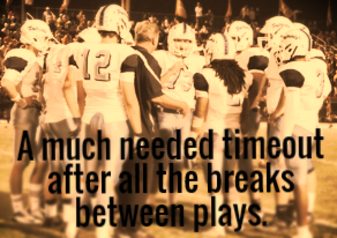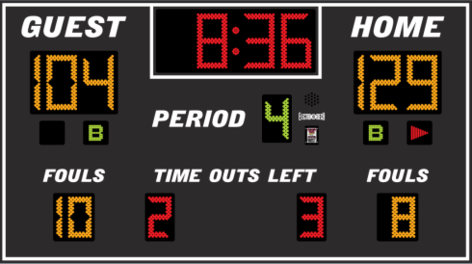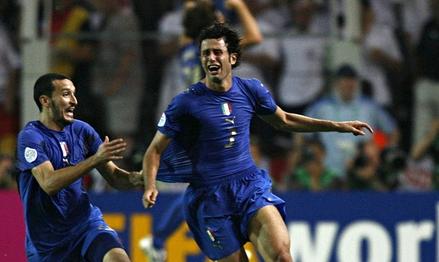Why Soccer is the Best Sport... Objectively
This post was originally published in three separate parts. Upon revamping our website, we decided to combine them into one fluid post.
There are many sports in the world. All of them have merit. All of them offer some sort of positive influence on the people who play them. But just as in Lord of the Rings, there is one sport to rule them all: soccer (or football, as it was originally and appropriately named – but since I’m in the United States, I’ll call it “soccer”).
There is nothing wrong with liking another sport, or even preferring and/or dedicating one’s life to another sport. However, it is also okay to acknowledge that it is only fractionally as worthy as the sport of soccer.
“You are biased.” “You are just saying that because it’s your favorite sport.” I have heard all the rebuttals – even from fellow soccer die-hards! But I contest: I like to believe that I gravitated toward, then chose soccer as my sport BECAUSE it is better than the others. And not the other way around.
In fact, I have played many sports – both organized and informally – throughout my life. And there are several that I like to play and many that I admire. But at the same time, I have had a number of “a-ha!” moments when I realized they were not for me, such as my “What am I doing here?” epiphany playing baseball in 8th grade (I hadn’t touched the ball once or broken a sweat, yet I would still have to shower when I got home because I was covered in orange dirt).
In order to objectively (because there’s no way this is just my opinion, right?) explain why soccer is superior to the rest, I present the categories to be assessed:
1. Physical aspects of sport
2. Technical aspects/requirements of sport
3. Tactical/decision-making/thinking aspects of sport
4. Other/miscellaneous aspects (to be specified individually)
The sport that positively fulfills the most of the above categories - and to the greatest extent possible - is “the best.” Any idea which one wins?

PHYSICAL ASPECTS OF SPORT
Limited Long-Term Injury and Wear on the Body (as a result of playing the sport) Basically, is it a “life sport?” Can you play it for the majority of your life? This is important because if a sport is fun, why wouldn’t you want to play it forever? And moreover, any sport (which is a recreational activity) worth playing should not be something that causes serious or long-term problems to your body. Certainly, accidents happen, and someone can be permanently injured playing anything. But statistics show that certain sports, because of their nature, are much more likely – almost guaranteed – to cause long-term damage if played long enough. For instance, American football has a drastically higher rate of concussions. Why wouldn’t it? Huge men purposely crashing into each other at full speed. Which leads us to another sport – Rugby. At least Rugby players are man enough to do the same thing without any pads. Kudos to them for this, and I admire the hell out of them because of it, but it’s probably not the wisest choice if you are interested in a healthy brain and body. Beyond just serious injuries like concussions, any sport that requires repeated and inevitable blows to the body takes a toll. So, even if someone plays American football for 20 years without injury, there is virtually no way they can play at 60 years old. Simple aging won’t allow our bodies to take the pounding. By the way, this rules out sports like hockey, lacrosse, and wrestling.

Requires Exceptional Muscle Strength “Muscle strength” is the explosive use of muscles – anaerobic activities. This is what body builders are great at doing – exerting great strength in short bursts. Why does this matter? Because it is sport. Sports are a test of physical ability, and muscle strength is a sign of superior physical ability. This is where our aforementioned friends, American football and rugby, shine. Warren Sapp could push anyone to the ground. But could he survive one lap around the field? More on that later. However, other sports - like basketball and golf – hardly require any admirable level of muscular strength. Your average adult, with the right technique, can toss a ball the distance of a three point shot or smash a golf ball a couple hundred yards. Requires Exceptional Muscle Endurance Remember Warren Sapp? This is what he doesn’t have. But that’s okay, because neither did any of the guys he played against. Muscle endurance is the ability to sustain an exercise for a prolonged period of time. Cardio vascular endurance is included in this (at least in my assessment). Football players, basketball players, volleyball players, and of course, the kings of not running – baseball players – all lack any sort of cardio vascular strength or serious muscle endurance. These sports require impressive levels of explosion, but the athletes will need some rest if asked to do anything for more than 10 seconds.
Requires a Wide-Range of Physical Literacy Again, sport is a test of physical ability. If all you can do is run in a straight line or row a boat, you have very limited physical literacy. Can you jump? What about backpedal? Shuffle or change direction quickly? A truly masterful athlete can do all of those things and more. Soccer Where does soccer fit into the picture? It’s pretty straight-forward: Long-Term Injury/Wear on Body: There are not as many concussions or long-term injuries in soccer as other sports. Period. A person can also play soccer well into their 60’s. If we can run (or even walk), we can play. Muscle Strength: There are many anaerobic actions in soccer. Players need to jump, strike a ball, and “out-muscle” others. It requires a high level of upper body and lower body strength. Muscle Endurance: 90 minute match. Only three subs. Average distance a player runs is 7 miles. Did I mention having to handle a ball and deal with full-contact opponents? Anyone who can play a full 90 (and sometimes 120) minutes can easily play all 48 minutes of basketball or 60 minutes of football. Physical Literacy: Running, change of direction, jumping, change of speed, shuffling, moving backward… the list goes on. It also includes throwing. Soccer requires all of them. As you can see, simply from a physical aspect, soccer is showing itself to be much more of a sport than the others. It demands much, yet it can be enjoyed for the majority of our lives. If you don't believe me, look at the chart below.

TECHNICAL ASPECTS OF SPORT
Requires a High Level of Coordination and/or Skill In addition to sport being a test of physical abilities, it is also a test of skills. Can a person use his body to execute something better than another person? The more difficult the skill, the more impressive the athlete. Some sports test people’s abilities to perform skills anyone can do. Like running. Anyone can run – maybe not as fast or as long, but they can do it. Similarly, anyone can throw stuff, catch stuff, or run into people like they do in American football or Rugby. Now, can everyone hit a ball traveling at 100mph with a stick? No way. Good job, baseball. Requires Long-Term Mastery Now, some skills may not be so easily executed by your average human, but that does not mean that they are difficult to master. For instance, someone who has never played volleyball before will not be good at it initially – it is difficult to slap a ball with your hand over a net. However, with minimal practice and decent athletic prowess, your average person can master the skills of volleyball pretty quickly. How many 14-year old Americans have never played (at least in an organized, “serious” fashion) sports like American football, volleyball, and basketball, and by the time they are seniors in high school, they are Varsity lettermen? Thousands. If it only takes four years to reach the highest level that the vast majority of people will ever reach in a sport, it is not especially difficult to master. Requires Unusual/Unnatural Skills Why do people pay money to see someone spit fire or swallow swords? Because those skills are unusual, unnatural, and they are impressive to simply do, let alone do them better or to a greater extent than someone else who can do them. The same goes for sport. As impressive as it is that Stephen Curry can hit three pointers more consistently than almost anyone else, it is not as impressive as the guy who can skate on ice while simultaneously manipulating a puck with a stick, as someone else tries to smash him into a wall (hockey). This is because humans can naturally throw a ball, but we cannot naturally skate on ice or manipulate objects with other objects. Think about it: What are the first motor skills we develop? As babies, the first things we do are with our hands. Babies can grab, touch, and throw. Don’t ever compare the best wide receiver or fastest runner to the best tennis player or golfer in terms of technical skill. Like I said, anyone can catch or run.

TACTICAL/DECISION-MAKING/THINKING ASPECTS OF SPORT
Requires Exceptional Decision-Making Ability Because the only thing more impressive than ice skating while manipulating a puck with a stick while someone else is trying to smash you into a wall, is doing all of that while having to decide – in a split second – what to do when something else unexpected happens. What good is physical ability and technical skill without making the right decision of when, where, or why to execute them? A true athlete can also out-wit his opponent. This automatically excludes racing sports like crew and cross country, but it also eliminates sports like American football and baseball. There are pretty much no American football players or baseball players who make their own decisions. Football coaches call the plays, and players already know all the possible options: if my opponent goes here, I go there, etc. Nothing truly unexpected happens. And in baseball, before a play ever happens (if it ever happens) the second baseman already knows where he is going to throw the ball if it comes to him based on the situation that he has had 6 minutes to figure out. Requires Problem Solving By the Players Real athletes don’t need other people to tell them what to do. They figure it out on their own. So when the other team gains momentum in a basketball game, if the coach has to call timeout to rally his players and/or tell them a play to run, they are not solving anything on their own. They are simply following orders. I think the lack of player decision-making in American football (with the exception of quarterback, maybe linebacker) and swimming is obvious enough, right? Requires Creativity in Strategizing Is it obvious what the best strategy is? Baseball: hit the ball over the wall or where someone won’t catch it. Swimming: get to the other side faster than the other guys. Golf: get it in the hole in less strokes than the other guys. Volleyball: Don’t let the ball hit the ground on our side. Real sports require a real strategy (that isn’t obvious). Basketball: should we work the ball around, penetrate the basket, or just chuck up three pointers? Tennis: how am I going to manipulate the other person’s position so that I can hit the ball where he can’t get it?
Soccer So how does soccer fit in to the technical and tactical aspects of sport? Here it is:
High Level of Coordination/Skill: Have your average non-soccer player accurately pass a ball 20 yards at an appropriate speed. I’ll wait. Long-Term Mastery: A fully developed soccer player must practice for many years. Even those of us who have played for 20 years have not necessarily mastered every skill. Unusual/Unnatural Skills: Does it get any less natural than using your feet? Other than walking, humans do not do anything naturally with their feet. Not to mention our thighs, chest, shoulders, and head. Exceptional Decision-Making: There are 22 players all doing something different, constantly changing their position on the field – quickly. There are an infinite number of directions in which the ball and those people can move. What decisions do we make based on all these changing factors? Problem Solving by Players: During a 90 minute match, the coach cannot stop the game for a timeout. He must wait for halftime. Other than that, he or she must try to change things on the fly, which is hardly possible when you have 11 players who, individually, are constantly worrying about 21 others and a ball, and most of them are farther than shouting-distance away. Players must solve their own problems. Creativity in Strategizing: Give me two soccer coaches or players who agree 100% on every tactical decision or philosophy, and I’ll give you a pink giraffe that can fly. There are so many different ways to try and out-wit the opponent in soccer, and based on what the other team does or what transpires, you may have to change your plans. So, as expected, soccer is the best test of technical and tactical ability across the board. To simplify the comparison, below is the next phase of the chart:

The third and final part will cover three final aspects related to sports, helping separate soccer as the best once and for all. Requires Teamwork It’s hard enough to execute physical and technical skill while making the right choices to out-wit opponents, but can you do all that in sync with other people? When you have a bunch of people on your own side who have their own abilities and thoughts – often conflicting with your own – the level of difficulty in trying to achieve a goal becomes more difficult. At the very least, it becomes more complex. Athletes who can manage this are to be respected. Scoring (or winning, if scoring is not involved) is Difficult or Not Guaranteed What is the point - or at the least, what is the big deal – of achieving an easy or promised objective, or one that will happen 100 times in a competition? Some sports have guaranteed “scoring,” like golf. Yeah, yeah – the achievement is in doing it in less attempts (and believe me, I know how difficult it is). But what if scoring was not guaranteed? What if there was a chance you would never get it into the hole in the first place? Now, actually getting a ball into a hole is an achievement. And if you are actually able to do it, AND you can do it better than someone else who can also do it, you are really special. Some people go their entire career in a sport without ever “scoring” (see my high school swimming record). Those who have scored, achieved something worthy of achieving. What about basketball? So a guy makes a basket. Big deal. We’ll see fifty more – from BOTH teams - before the game is over. It’s meaningless if it happens 100 times a game.
What's more special? 233 points, or one goal that no one expected to happen?
Easily Accessible and Playable This has less to do with the actual ability to play the sport as it does with the general ability to interact with it. If you love to play something, why should it be so difficult to get everything you need to play it? If you need to find a large pool, or you need an ice rink or a net, that’s a huge burden and something not every kid can do in his or her backyard. A great sport is something anyone can play and attempt, in some variation or another. If all you need is an object to throw, a stick to fight with, or hell, just someone else to pin, the more you can play and enjoy.


Soccer How does soccer compare in all these categories? Requires Teamwork: Check. Scoring is Difficult or Not Guaranteed: We have all seen a 0-0 final score. And we also have seen overwhelmingly emotional reactions to goals. They are special, and far from guaranteed. Easily Accessible and Playable: One of the biggest reasons soccer is the most popular sport in the word is that anyone can play at any time. All you need is a “ball” (a wadded-up paper bag will do) and “goals” (hitting this tree trunk, or knocking it between "this rock" and "that bush" will do). There you have it. Soccer not only requires all the greatest in physical, technical, and tactical ability, but it presents challenging yet obtainable obstacles that can be enjoyed anywhere at any time by anyone. It fulfills all of the assessed factors, and in most cases, to a great extent. These factors make it the best sport in my book, and especially in my heart.












Comments